-
Study
-
Quick Links
- Open Days & Events
- Real-World Learning
- Unlock Your Potential
- Tuition Fees, Funding & Scholarships
- Real World Learning
-
Undergraduate
- Application Guides
- UCAS Exhibitions
- Extended Degrees
- School & College Outreach
- Information for Parents
-
Postgraduate
- Application Guide
- Postgraduate Research Degrees
- Flexible Learning
- Change Direction
- Register your Interest
-
Student Life
- Students' Union
- The Hub - Student Blog
- Accommodation
- Northumbria Sport
- Support for Students
-
Learning Experience
- Real-World Learning
- Research-enriched learning
- Graduate Futures
- The Business Clinic
- Study Abroad
-
-
International
International
Northumbria’s global footprint touches every continent across the world, through our global partnerships across 17 institutions in 10 countries, to our 277,000 strong alumni community and 150 recruitment partners – we prepare our students for the challenges of tomorrow. Discover more about how to join Northumbria’s global family or our partnerships.
View our Global Footprint-
Quick Links
- Course Search
- Undergraduate Study
- Postgraduate Study
- Information for Parents
- London Campus
- Northumbria Pathway
- Cost of Living
- Sign up for Information
-
International Students
- Information for International Students
- Northumbria and your Country
- International Events
- Application Guide
- Entry Requirements and Education Country Agents
- Global Offices and Regional Teams
- English Requirements
- English Language Centre
- International student support
- Cost of Living
-
International Fees and Funding
- International Undergraduate Fees
- International Undergraduate Funding
- International Masters Fees
- International Masters Funding
- International Postgraduate Research Fees
- International Postgraduate Research Funding
- Useful Financial Information
-
International Partners
- Agent and Representatives Network
- Global Partnerships
- Global Community
-
International Mobility
- Study Abroad
- Information for Incoming Exchange Students
-
-
Business
Business
The world is changing faster than ever before. The future is there to be won by organisations who find ways to turn today's possibilities into tomorrows competitive edge. In a connected world, collaboration can be the key to success.
More on our Business Services-
Business Quick Links
- Contact Us
- Business Events
- Research and Consultancy
- Education and Training
- Workforce Development Courses
- Join our mailing list
-
Education and Training
- Higher and Degree Apprenticeships
- Continuing Professional Development
- Apprenticeship Fees & Funding
- Apprenticeship FAQs
- How to Develop an Apprentice
- Apprenticeship Vacancies
- Enquire Now
-
Research and Consultancy
- Space
- Energy
- AI Futures
- CHASE: Centre for Health and Social Equity
- NESST
-
-
Research
Research
Northumbria is a research-rich, business-focused, professional university with a global reputation for academic quality. We conduct ground-breaking research that is responsive to the science & technology, health & well being, economic and social and arts & cultural needs for the communities
Discover more about our Research-
Quick Links
- Research Peaks of Excellence
- Academic Departments
- Research Staff
- Postgraduate Research Studentships
- Research Events
-
Research at Northumbria
- Interdisciplinary Research Themes
- Research Impact
- REF
- Partners and Collaborators
-
Support for Researchers
- Research and Innovation Services Staff
- Researcher Development and Training
- Ethics, Integrity, and Trusted Research
- University Library
- Vice Chancellors Fellows
-
Research Degrees
- Postgraduate Research Overview
- Doctoral Training Partnerships and Centres
- Academic Departments
-
Research Culture
- Research Culture
- Research Culture Action Plan
- Concordats and Commitments
-
-
About Us
-
About Northumbria
- Our Strategy
- Our Staff
- Our Schools
- Place and Partnerships
- Leadership & Governance
- University Services
- Northumbria History
- Contact us
- Online Shop
-
-
Alumni
Alumni
Northumbria University is renowned for the calibre of its business-ready graduates. Our alumni network has over 253,000 graduates based in 178 countries worldwide in a range of sectors, our alumni are making a real impact on the world.
Our Alumni - Work For Us
Postgraduate research is a fundamental part of the Department for Sport’s research culture, helping to enrich and diversify the breadth and depth of our work.
The PGR community is highly valued in this Unit and there has been significant growth since REF2014, with 50 completions compared to 9 at REF2014. Our PGRs, not only produce high quality research, but also secure excellent employment (in academia, elite sport and industry). According to the latest Postgraduate Research Student Experience Survey, Northumbria was rated at 84% for overall satisfaction, comparing favourably to the Global mean and Russell Group Universities (82% and 71%, respectively)
Take a look at some of our current students and what they're working on below.
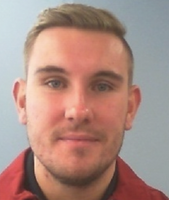 Callum Morgan
Callum Morgan
Thesis title: Taking sports work seriously: Impression management, emotional labour, and employee well-being in sports organisation
Supervisor: Professor Paul Potrac
Callum’s doctoral research explores the dramaturgical, relational, and emotional features of the everyday working life for coach educators. Combining multiple qualitative methods with the theorising of Goffman (1959) and Hochschild (1983), his thesis seeks to generate new knowledge concerning how coach educators prepare for, enact, and reflect upon the various individual and collective performances that comprise their work with various interconnected stakeholders. Alongside generating rich insights into when, how, and why coach educators seek to manage their workplace personas, this study will also examine the emotional dimensions of their practices. Specifically, this thesis will examine what emotions coach educators experience in their work, which emotions they show and hide to others, as well as the biographically informed meaning making that underpins their respective outlooks on this topic.
Twitter: @scholarlycoach8
 Kimberley Hardcastle
Kimberley Hardcastle
Thesis title: Co-creating brand meaning in the postmodern era: understanding consumer constructions of branding in the English Higher Education market.
Supervisor: Dr Paul Cook
Her research interests include sport marketing and consumer culture, marketing communications and social media, specifically, segmenting sports consumers in the digital era. Kimberley is currently undertaking a PhD that focuses on the co-production of interpretive communities within the English Higher Education sector, with a specific focus on sport consumers.
 David Hooper
David Hooper
Thesis title: An examination of the philosophies, behaviours and practices present within grassroots soccer, considering the perspectives of coaches and coach educators.
Supervisor: Dr Spencer Boyle
David’s research is aiming to develop the quality of coaching within grassroots sport and in turn, develop life-long sport participation, along with the development of health and well-being of those involved with sport. The aim of David’s first study was to evaluate, appraise and synthesise all existing Coaching Practice research in Participatory Sport by conducting a Systematic Review of the literature. The aim of David’s second study was to identify what grassroots soccer coaches perceive as their coaching intentions, values and beliefs underpinning their coaching philosophy and practice in grassroots soccer. Finally, the aim of David’s third study is to determine whether the coach behaviours in action are supportive of the coaching beliefs and values expressed by coaches in study two.
 Natalie Dyas
Natalie Dyas
Thesis title: Physiological determinants and demands of trampoline gymnastics
Supervisor: Professor Glyn Howatson, Dr Kevin Thomas. External supervisors: Dr Dave Green, Ezme Matthew, Louise Fawcett (English Institute of Sport)
The Sports Science & Medicine team working within British Gymnastics and The English Institute of Sport are constantly aiming to better understand and measure gymnastics performance. Gymnastics, as a sport, consists of a plethora of different disciplines and has hugely varying styles within each of the disciplines; each conforming to its own specific code of points. The Olympic disciplines include trampolining, and both women’s and men’s artistic. Rigorous training is seen in all gymnastic disciplines many years before gymnasts reach competition age, with gymnasts being exposed to a high volume of technical and physical sports-specific training. A wide range of proposed physiological attributes necessary for the training and performance of gymnastics skills have been suggested, including strength, power, flexibility, coordination, balance and energy system demands. However, there is a paucity of research assessing and understanding the proposed physiological demands that underpin each of the gymnastics disciplines, and in turn how they can inform training and enhance performance. This body of research will aim to identify and understand the key physiological demands and key determinants of performance, and to devise and apply interventions to improve the physiological potential of elite level gymnasts.
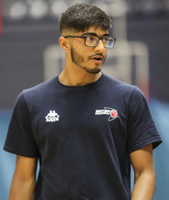 Arran Parmar
Arran Parmar
Thesis title: Aetiology of the demands of intermittent exercise methods
Supervisor: Dr Phil Hayes
High Intensity Interval Training (HIIT) is a popular and effective method to improve cardiorespiratory and metabolic function, and in turn physical performance. Whilst its popularity has increased in recreational and elite populations, the efficacy of HIIT in well trained middle- to long-distance runners is unclear. Specifically, the implementation of HIIT into the training programme design and how this is quantified remains unknown. Additionally, the effects of different types of HIIT sessions, in terms of the length and intensity of intervals used, on the physiological and fatigue responses elicited are not known.
The aims of this research will be to improve current knowledge surrounding the efficacy of HIIT in well trained middle- to long-distance runners. Using current HIIT methods employed in well trained middle- to long-distance runners, the cardiorespiratory and metabolic responses to different HIIT sessions matched for load, using novel methods, will be compared. Additionally, the time course of fatigue responses to these sessions will be compared, helping to identify the recovery required from different HIIT sessions. These findings will aid middle- to long-distance athletes and coaches in understanding the implications of HIIT sessions prescribed along with the optimal prescription necessary to elicit desired adaptations to improve performance.
 Kelly Mcnulty
Kelly Mcnulty
Thesis title: ‘The effect of the menstrual cycle on athletic performance, adaptation and recovery’.
Supervisor: Dr Kirsty Hicks
Over the last three decades there has been a rise in female participation in sport, as such, the need for understanding the physiology of the female athlete has become increasingly essential. Specifically, the menstrual cycle (MC) is recognised as an important biological rhythm, whereby, large changes in endogenous sex hormones (such as, oestrogen and progesterone) are observed. Despite the reported anabolic effects of oestrogen, and the anti-oestrogenic effects of progesterone, the effects of these fluctuating endogenous sex hormones during the MC on athletic performance, as well as, adaptation and recovery have yet to be elucidated.
Whilst research has highlighted variations in many physiological parameters, as a result of changes in circulating oestrogen and progesterone concentration levels across the MC, which might have subsequent implications for aerobic (power and capacity), anaerobic (power and capacity) and strength performance within certain cycle phases, there remains a multitude of unanswered questions regarding the effects of female reproductive hormones on the various determinants of athletic performance. The focus of my PhD work is to, therefore, advance the understanding of changes in athletic performance across the MC, as well as, help to elucidate the mechanistic, functional and recovery (adaptation) responses from exercise across the MC, with the aim of educating and assisting both athletes and practitioners in optimising training and recovery in female athletes. Ultimately the MC has always appeared as a bit of a taboo topic, but hopefully by talking about it and making original contributions to the research area, it will help in advocating a more sensible attitude to publicising menstruation and sport.
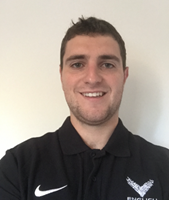 Alexander Anastasiou
Alexander Anastasiou
Thesis title: The physiological demands of Olympic class windsurfing
Supervisor: Professor Glyn Howatson, Dr Tom Jones
Sail-pumping in Olympic windsurfing is an action in which a windsurfer pulls and pushes the sail rhythmically so that it acts as a wing, thus providing the board with additional propulsion. This action is particularly effective in wind speeds that are considered light. This action is an important determinant of performance outcome and results in Olympic windsurfing being classified as a highly physiologically demanding class.
Therefore, the aim of this project would be to assist in the examining the physiological capacities of windsurfers and conduct land-based training that provides a suitable stimulus to adequate replicate the demands being placed on-water. Our research is to initially determine a battery of tests that best replicate components of windsurfing pumping performance. Furthermore, we aim to understand the measurement properties (i.e. reliability and validity) of such tests. Finally, we will look to investigate the physical characteristics of British Sailing Team windsurfers which can provide further information regarding underlying attributes that support performance success.
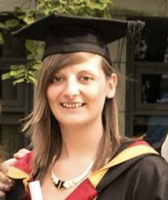 Ruth Boldon
Ruth Boldon
Thesis title: Nutritional interventions for metabolic health in adolescent academy footballers
Supervisor: Dr Penny Rumbold
Ruth’s PhD focuses on investigating the metabolic health and thyroid function in adolescent male footballers. Whilst the importance of thyroid function and metabolic rate is well-established there is limited knowledge into the metabolic health of adolescent athletes.
Metabolic rate is governed by the thyroid hormones and the liver and is vital for systemic health as well as sporting performance. Therefore, liver and thyroid function are key to maintaining metabolic health. However, due to a multitude of stress factors associated with maturation and training loads, adolescent athletes could be at risk of thyroid dysfunction and in turn disruptions to metabolic rate. This in turn could have a negative impact on growth, development and performance.
Therefore, over the course of her project Ruth aims to profile the players thyroid function and metabolic rate in relation to their training loads and energy intake. This will enable Ruth to identify any points in the season where metabolic health is most at risk and implement appropriate nutritional interventions to alleviate these issues.
 Emily Hume
Emily Hume
Thesis title: Efficacy of physical activity tele-coaching to optimise daily physical activity levels in lung transplant recipients
Supervisor: Professor Ioannis Vogiatzis
Lung transplantation is a recognised treatment option for patients with end-stage lung disease. With increasing survival rates after transplantation, more attention is now focusing on enhancing independent functioning, quality of life and exercise capacity in these patients. Based on objective accelerometry-performed daily physical activity measurements, lung transplant recipients are markedly inactive in daily life compared to their healthy age-matched counterparts. Despite the well documented benefits of pulmonary rehabilitation to enhance exercise capacity and physical activity levels in lung transplant recipients, availability and uptake of these programmes remains problematic.
Emily’s PhD will review existing interventions used to modify physical activity in lung transplant candidates and assess the efficacy of behavioural change strategies to increase physical activity levels. The main trial will investigate whether adding a semi-automated physical activity tele-coaching intervention combined with cognitive behavioural therapy to usual care is superior to usual care (including referral to pulmonary rehabilitation) in terms of change in physical activity levels, functional capacity, health-related quality of life, symptoms, engagement with conventional pulmonary rehabilitation and incidence of complications post hospital discharge following lung transplantation.
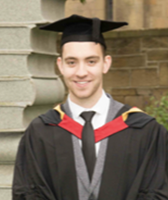 James Manifield
James Manifield
Thesis title: Effect of inspiratory muscle training on respiratory muscle function during exercise and daily physical activity levels in pre-frail/frail older adults
Supervisor: Dr Gill Barry
This research will involve the use of optoelectronic plethysmography (OEP) to determine chest wall volumes and respiratory muscle recruitment in frail and pre-frail older adults. Initially, a study to determine the reliability of the OEP system within this clinical population will be conducted before an exercise intervention, involving resistance and respiratory muscle training, is implemented. Changes in chest wall kinematics following this intervention in frail older adults will be compared to those observed in age-matched controls with findings potentially being used to update exercise guidelines for this population.
 Katherine Jones
Katherine Jones
Thesis title: The impact of exercise on bone mineral density and muscular function in adults with Crohn's Disease
Supervisor: Dr Katherine Baker
‘Resistance training in inactive or mildly active Crohn’s disease patients: a randomised controlled pilot trial’ Investigating the potential benefits of a home based resistance training programme on bone mineral density, muscular performance, fatigue and quality of life in inactive or mildly active Crohn’s disease patients.
‘Resistance and aerobic exercise training before surgery in adults with Intestinal Failure: a randomised controlled feasibility trial’ Examining the feasibility of conducting a larger randomised controlled trial within the preoperative intestinal failure population, evaluating how effective it is based on adherence, recruitment, suitability and retention.
 Rachel Kimble
Rachel Kimble
Thesis title: Dietary anthocyanins and cardiovascular risk factors: the influence of tart Montmorency cherries on health indices in middle-aged adults
Supervisor: Professor Glyn Howatson
Montmorency tart cherries have repeatedly been shown to be a rich source of various phytochemicals. These phytochemicals, such as polyphenols and flavonoids, are currently being investigated for their cardio- and neuro-protective properties. Therefore, there is a putative role for phytochemical-rich foods, such as tart cherries, to reduce risk factors associated with chronic diseases and preserve overall health. Using a multidisciplinary approach, Rachel’s PhD project will investigate to potential health benefits associated with longitudinal Montmorency tart cherry supplementation. The primary outcome of this research will be the effects of Montmorency tart cherries on vascular function. However, Rachel will also investigate other indices of human health to determine the applicability of this functional food to healthy aging.
See more from our students in Optimising Human Performance
See more from our students in Promoting and Preserving Health and Wellbeing
See more from our students in Informing Practice and Policy
Upcoming events

Broken Bonds: New Perspectives on Marital Breakdown
The Great Hall
-

Supporting Survivors of Sexual Violence and Abuse Conference 2026
CCE1 - City Campus East 1
-
